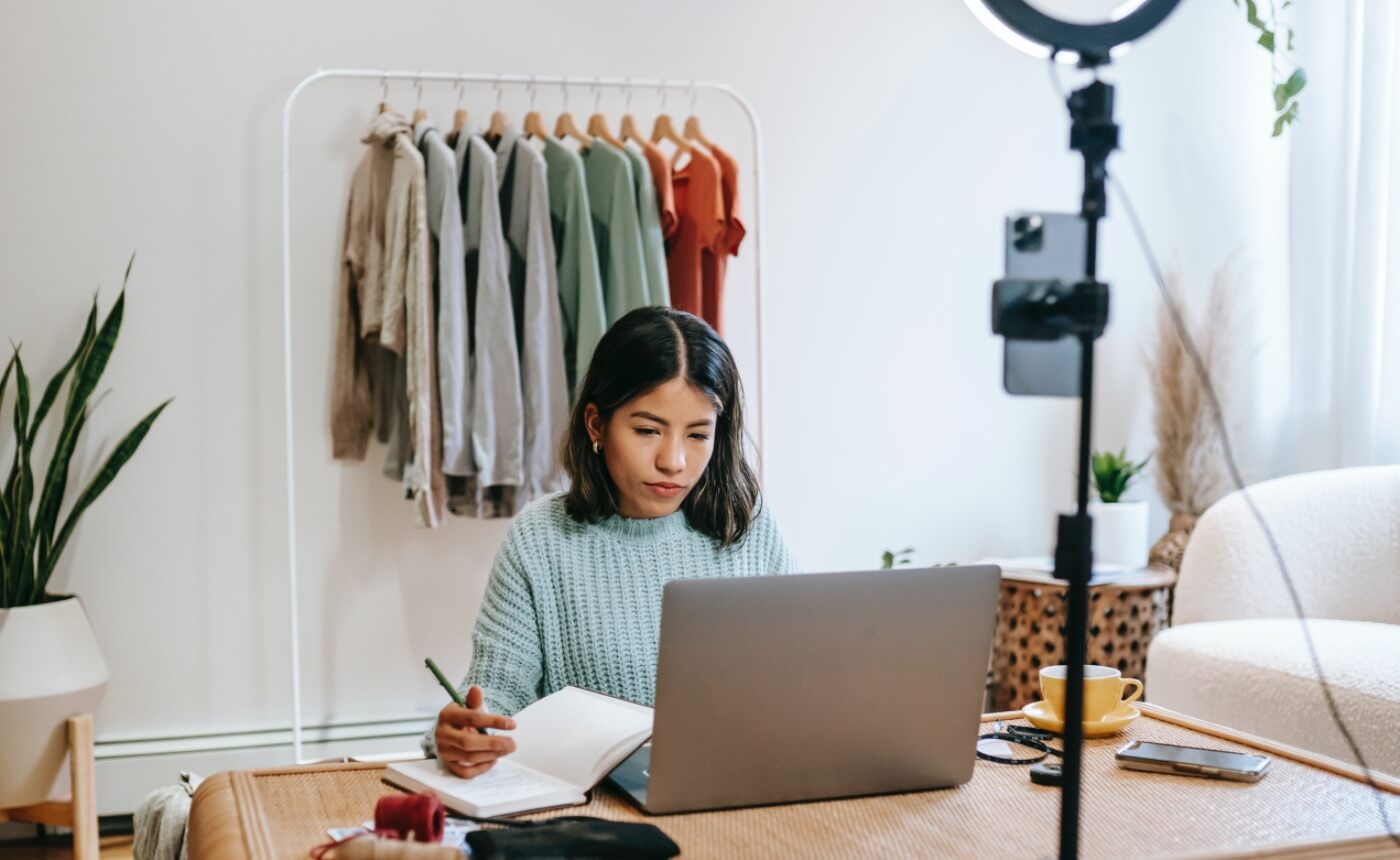How are your work / life boundaries these days? If you are anything like me, I’m guessing they could use a little reinforcement. With most of us working at home for the best part of a year, work and life have never been more closely linked. Boundaries are blurred for everyone, but for self-employed people, I’d argue they are even more fragile.
The reality of self-employment in the pandemic is that you can not switch off. Work and life have become intertwined. It’s never one or the other. I know this is true for many of my employed friends too – but there are some extra dimensions to explore when it comes to self-employment.
What is burnout?
Working from home has its perks (hello yoga pants) but it’s got it’s problems too – not least burnout.
Burnout is a state of emotional, physical, and mental exhaustion caused by excessive and prolonged stress. 12 months into lockdown life – it’s no surprise that more of us feel overwhelmed, tired, emotionally drained, and unable to meet constant demands.
Burnout is very real for millions of people and we are seeing (some) employers working hard to help. Corporates are exploring workplace wellbeing programmes, regularly checking in with employees, and implementing more virtual team activities.
My friends and family sometimes joke and roll their eyes about Zoom check-ins, but actually that sounds pretty good to me. Self-employment has its benefits, but the reality is you don’t get check-ins or workplace wellbeing schemes. You don’t have a manager (love it) but you are responsible for your own motivation and wellbeing (less keen).
Over 5 million people are self-employed in the UK and it’s a number that’s only going to rise as a result of the pandemic. Lack of human contact, financial worries and over reliance on digital platforms are a recipe for burnout, and self-employed people have little, if any, support to adapt. It’s time we took being your own boss burnout seriously and stopped expecting every freelancer and founder to figure this out alone.
Lack Of Human Contact
Many freelancers and small business owners are used to working alone but lack of human contact is really taking its toll. I want to work in coffee shops and co-working spaces. My house is a tip and my two small children are not great colleagues.
Community is critical to self-employment success and there has been a boom in online communities springing up during the pandemic. I’ve joined two since lockdown and have found them to be invaluable for not just advice and ideas, but connection and camaraderie too.
Digital Overwhelm
While the internet can serve us up gorgeous places for connection, it can also be a breeding ground for comparison and anxiety. I don’t know any self-employed person who is immune to imposter syndrome and comparing themselves and their work. Places like Instagram are full of empowering messages but in reality it can be a hotbed for overwhelm and procrastination.
The problem is, with no other way to talk to people, connect and get inspired, where else do you go? We are over reliant on digital platforms – for both connection and marketing.
Self-employed people often feel forced into competition with each other – I’ve found one solution is to remind myself that someone else’s win isn’t my loss and to focus on community and connection.
I refuse to give up digital platforms because 1 – I like them and 2 – they are a great networking and marketing tool but I am learning to get clearer on my boundaries (weekends off, a new personal account and time limits to avoid doom scrolling).
Financial Pressures
While digital overwhelm may seem like a first world problem, there are massive financial stressors on freelancers and founders. Lots of self-employed people have financial worries, feel concerned about income and clients, and many have had little or no government support.
While the furlough scheme remains in place, over half a million self-employed people received no financial support to help with loss of income during the pandemic. This has disproportionally affected women because the self-employed support scheme failed to account for adjustment to income during maternity leave, meaning many newer mothers received reduced or no support.
Find Your Safety Net
Self-employed people are less supported generally, and obviously that’s a price you pay for the extra freedom of working for yourself. I can’t rewire the framework of capitalism but if you are in the same boat as me – you are not alone.
I have found while broad support is missing, the safety net is in other self-employed people. Find a community (or build your own mindfully on social media), talk to someone in a similar boat and ask for help. Get clear on your boundaries and learn to switch off – to value your work as work and then take proper deep rest.
Or failing that have an afternoon off with naps and Netflix – after all, you are your own boss now.

